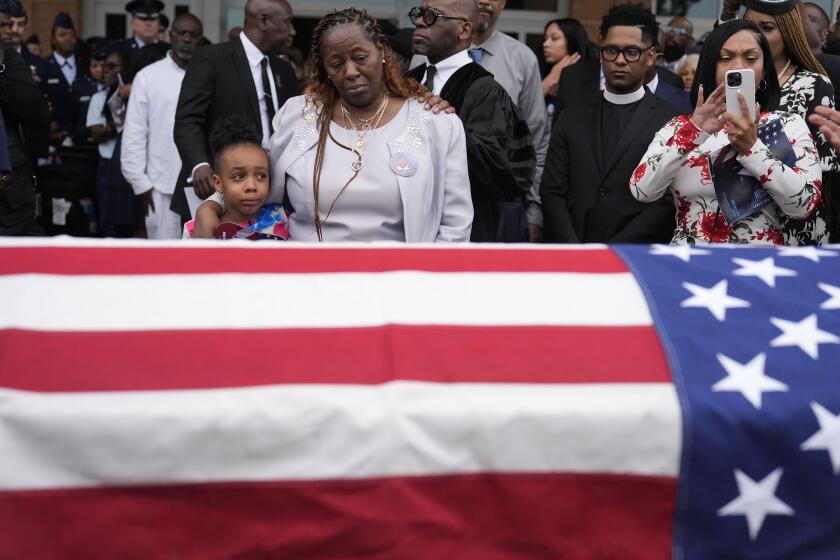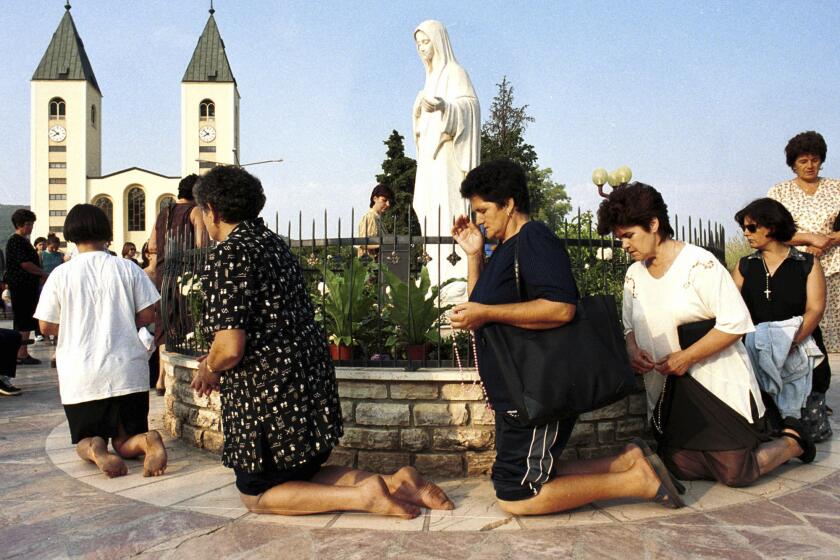Cuban Uses Peace Signing to Rap U.S.
A southern Africa peace-signing ceremony erupted into verbal warfare today with Cuba’s foreign minister attacking President Reagan and South Africa hitting back at its critics.
At the U.N. ceremony, South Africa, Cuba and Angola signed a historic U.S.-mediated pact to bring independence to Namibia, the former Germany colony known as South-West Africa, ruled by Pretoria since World War I.
A second agreement, signed by Cuba and Angola, calls for the phased withdrawal of Cuba’s estimated 50,000 troops from Angola by July 1, 1991, meeting a South African condition for Namibian independence.
The proceedings were far from harmonious.
Cuban Foreign Minister Isidoro O. Malmierca accused the United States of manipulating and distorting the causes of conflict in southern Africa.
“It is not surprising to see that the President of the United States, in his statement to the General Assembly when referring to the conflict in southern Africa, did not even mention apartheid, the main cause of conflict in this region, nor Namibia’s independence,” he said.
South African Foreign Minister Roelof F. (Pik) Botha challenged Cuba to an on-the-spot debate on which of their countries showed greater respect for human rights.
“I will say no more to my colleague from Cuba today than (that) I am quite prepared to submit evidence of African heads of state who would wish the Cuban troops to leave Angola immediately,” Botha said.
U.S. Secretary of State George P. Shultz, who presided over much of the proceedings, observed that the sharp exchanges showed how difficult--”perhaps miraculous”--it had been to reach a settlement between parties so bitterly at odds.
More to Read
Start your day right
Sign up for Essential California for news, features and recommendations from the L.A. Times and beyond in your inbox six days a week.
You may occasionally receive promotional content from the Los Angeles Times.






